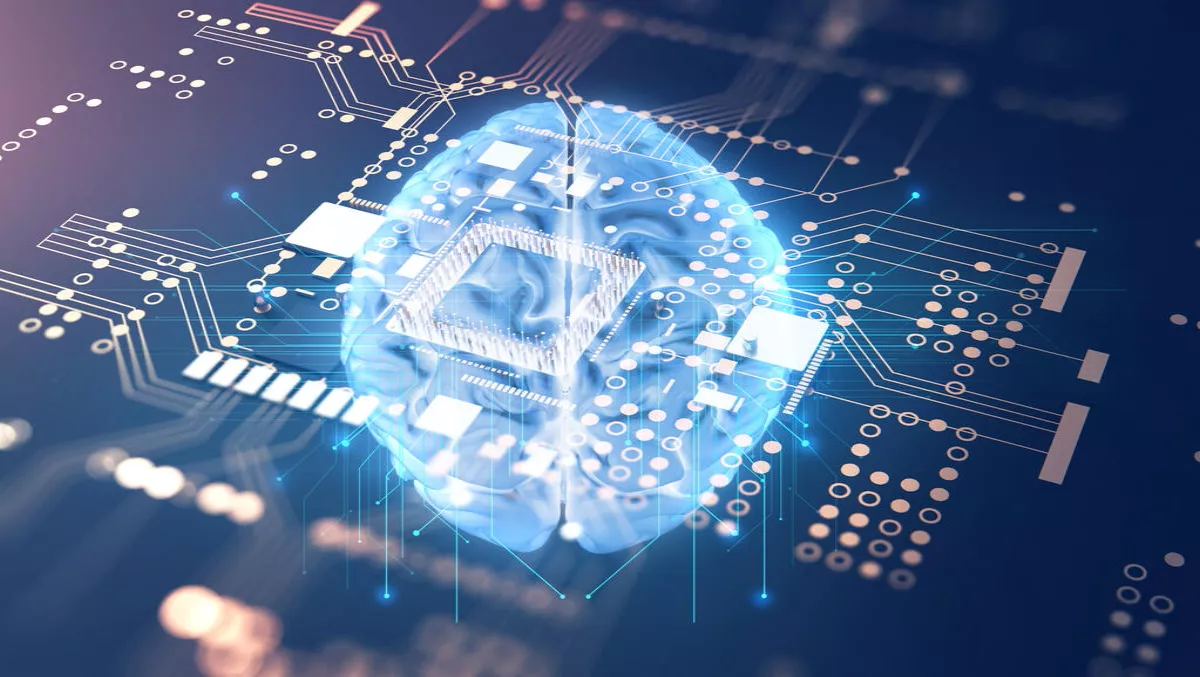
Microsoft has released a series of artificial intelligence (AI) tools and solutions designed to help infuse enterprise organisations with intelligence and insight, and amplify human ingenuity.
These announcements included the preview availability of its Azure IoT Edge solution, which brings AI and advanced analytics to Internet of Things capable edge platforms, easing cloud reliance concerns.
Microsoft says the Azure IoT Edge solution enables developers to build and test container-based modules using C, Java, .NET, Node.js and Python, and simplify the deployment and management of workloads and machine learning models at the edge.
The company also announced updates to its Azure Machine learning platform, which now has further integration with Azure IoT Edge, as well a model deployment on iOS devices with Core ML.
Azure SQL Database also now includes a preview of built-in R services, designed to further bring AI everywhere, including the cloud and the edge.
In an interview with TechDay, Steve Clayton, Microsoft AI general manager said, “The key news that we're announcing today is around bringing a new set of developer capabilities for AI to enable our customers and partners to work more efficiently.
“Earlier in the year at our build conference back in May, we announced this notion of an intelligent cloud and an intelligent edge and right now most of the intelligent ‘work' is being done in the cloud because it requires a certain amount of compute capability,” he said.
“What we're now seeing is a big demand from customers and partners who want to have some of that intelligence down at the edge, and we're now delivering that capability.
The company has also announced a solution for developers and data scientists called Visual Studio Tools for AI.
The new solution combines some of the capabilities of Microsoft's Visual Studio, such as debugging and rich editing, with the support of deep learning frameworks such as Microsoft Cognitive Toolkit, Tensorflow and Caffe.
The company says Visual Tools for AI allows developers and data scientists to develop AI models on any framework or language.
Other AI solutions released in Australia today include multiple updates within Microsoft Translator with expanded use of neural networks technologies to improve both text and speech translations in all of Microsoft Translator's supported products.
For people learning Chinese, Microsoft is aiming to fill that void with the release of new smartphone app coming soon from Microsoft Research Asia that can act as an always available, AI-based language learning assistant.
Microsoft says the “explosion of interest” from Australian enterprises is in line with a prediction from Gartner, which stipulates that by 2020, AI technologies would be pervasive in almost every new product and service.
However, Clayton says a key focus of Microsoft's work in AI lies in ethical implementation and human enablement rather than replacement.
He says, “We believe AI will complement rather than replace human endeavour in all fields. We encourage business leaders to replace the labour-saving and automation mindset with a maker and creation mindset.
“AI is about amplifying human ingenuity through intelligent technology that will reason with, understand and interact with people and, together with people, help us solve some of society's most fundamental challenges.